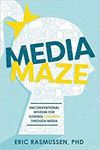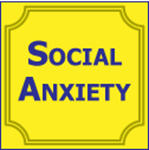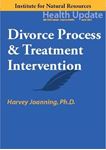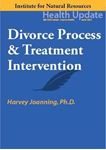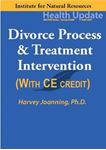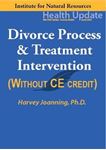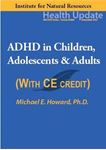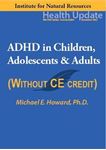You have no items in your shopping cart.
Pediatrics
Pediatric Care
Filter by price
Media Maze: Guiding Children through the Digital Age
This course will explore the prevalence of children’s media use, many of the media effects that are of most concern to those interested in the well-being of youth, and the social scientific theories that explain how children’s brains cognitively and emotional process media content. Finally, the course identifies specific strategies that can be taken to help youth avoid the potentially negative effects, and enjoy the potentially positive effects, of media exposure.
$40.00
Social Anxiety
Defines social anxiety. Describes the symptoms of social anxiety. Identifies the causes of social anxiety. Describes the similarities and differences between shyness and social anxiety. Outlines the role of thinking in social anxiety. Describes strategies for coping with and reducing social anxiety.
$30.00
Sugar, Salt, & Fat - 2nd edition
This home-study course outlines the various factors that make foods palatable. It provides evidence that the "hyperpalatability" of our current food supply is undermining our normal satiety signals, motivating the drive to eat even when there is no physiologic need for food. This course presents evidence that repeated exposure to high quantities of palatable foods (i.e., those high in sugar, fat and salt) can alter the brain in ways similar to drugs of abuse, essentially "rewiring" the brain to promote compulsive eating and loss of control over food.
$35.00
Vitamin D: Vitamin, Hormone, & Protector
Discusses the historical incidents that led to the discovery of vitamin D. Recognizes the synthesis and function of various forms of inactive and active vitamin D. Describes the role that vitamin D may play in the physiological function of various systems. Lists the current guidelines for supplementation of vitamin D. Lists the blood levels that define the various categories of vitamin D deficiency and sufficiency. Identifies the best food sources of vitamin D.
$30.00
Vitamin D: Vitamin, Hormone, & Protector - Ebooklet
Discusses the historical incidents that led to the discovery of vitamin D. Recognizes the synthesis and function of various forms of inactive and active vitamin D. Describes the role that vitamin D may play in the physiological function of various systems. Lists the current guidelines for supplementation of vitamin D. Lists the blood levels that define the various categories of vitamin D deficiency and sufficiency. Identifies the best food sources of vitamin D.
$25.00
ADHD in Children, Adolescents, & Adults - Streaming Video - 6 Hours (w/Home-study exam)
Describes the effects of ADHD on attention, emotional control, impulse control, and executive functions. Describes the clinical presentations of ADHD and current diagnostic criteria. Discusses the genetic, developmental, neurologic and environmental causes of ADHD. Describes the development, symptoms, and impact of ADHD as they relate to children, adolescents, and adults. identify effective ADHD treatments focused on behavior management, diet, exercise, and sleep. Discusses the stimulant and non-stimulant medications for ADHD and their effectiveness. Discusses how the recent empirical research in this course can be translated to clinical practices to improve patient care and outcome. Describes, for this course, the implications for dentistry, mental health, pharmacy, nursing, occupational, physical therapy and other healthcare professions.
$83.00
ADHD in Children, Adolescents, & Adults - Streaming Video only *NO CE - 6 hours
Describes the effects of ADHD on attention, emotional control, impulse control, and executive functions. Describes the clinical presentations of ADHD and current diagnostic criteria. Discusses the genetic, developmental, neurologic and environmental causes of ADHD. Describes the development, symptoms, and impact of ADHD as they relate to children, adolescents, and adults. identify effective ADHD treatments focused on behavior management, diet, exercise, and sleep. Discusses the stimulant and non-stimulant medications for ADHD and their effectiveness. Discusses how the recent empirical research in this course can be translated to clinical practices to improve patient care and outcome. Describes, for this course, the implications for dentistry, mental health, pharmacy, nursing, occupational, physical therapy and other healthcare professions.
$69.00

